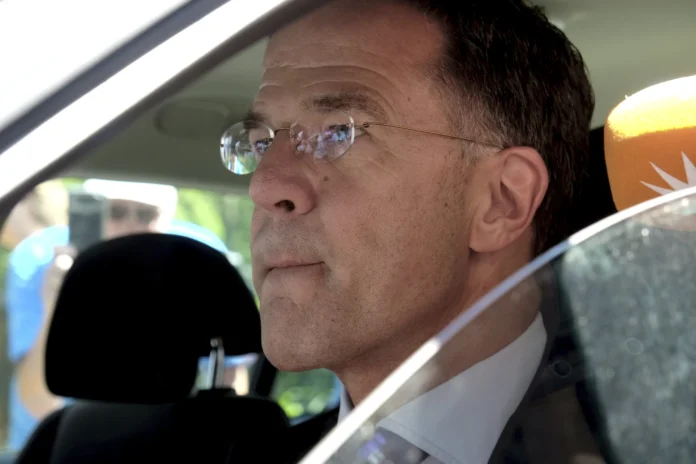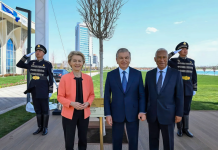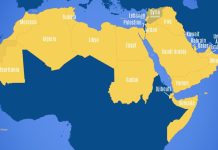The Hague, Netherlands (Reuters) – Dutch Prime Minister Mark Rutte met with King Willem-Alexander on Saturday to formally leave the four-party coalition, paving the way for upcoming parliamentary elections. A deeply divided nation, the Netherlands now faces the challenge of resolving this political crisis.
King Willem-Alexander interrupted his family vacation in Greece to meet with Mr Rutte, who arrived at the palace in a Saab station wagon. After an hour-long meeting, Prime Minister Rutte chose not to answer questions from reporters, citing the private nature of the meeting with the king.
The trigger for this regime change was the immigration crisis that has plagued Europe for years. The immigration issue exposed deep ideological differences between the four parties that make up the fragile coalition. With general elections just a few months away, the issue is expected to be a focus of the campaign.
Geert Wilders, leader of the anti-immigrant Liberal Party, said: “We are the party that can secure a majority that will significantly stem the influx of asylum seekers.”
left-wing opposition also wants the election to focus on addressing Mr Rutte’s perceived failures, including climate change, the housing crisis and the future of the agricultural sector.
Socialist Party leader Lillian Marinissen expressed satisfaction with the fall of Rutte’s government, saying: “I think everyone felt that this cabinet was ready.” They have created more problems than they solved.”
Despite the differences among the four parties in Rutte’s government, it will continue to function as a caretaker administration until a new coalition is formed. However, it will refrain from passing major legislation during this period.
Sigrid Kaag, leader of the centrist D66 party, emphasized the importance of political stability during these challenging times, tweeting, “Given the challenges of the times, a war on this continent, nobody profits from a political crisis.”
Prime Minister Rutte, known for his lengthy tenure and ability to build consensus, appeared to be the one who was willing to risk toppling his fourth coalition government by making tough demands in the negotiations aimed at reducing the number of asylum seekers in the Netherlands.
Reports suggest that Rutte spent months negotiating a set of measures to curb the influx of migrants into the country of nearly 18 million people. Proposed measures included creating two categories of asylum status—one temporary for individuals fleeing conflicts and another permanent for those seeking to escape persecution—and reducing the number of family members permitted to join asylum-seekers in the Netherlands. But the idea of blocking the family reunion met with strong opposition from the ruling minority Christian League.
Sigrid Kaag criticized the tense atmosphere during negotiations, saying, “I think it created unnecessary tension.”
Another coalition partner, Christian Democrat leader Pieter Herma, called Mr Rutte’s behavior at the meeting “almost ruthless”.
The government collapsed following the unexpected victory of the populist BBB (Peasant Movement) in recent state elections. The BBB, which defends peasant interests, is already the largest force in the Dutch Senate and poses a serious threat to Rutte’s People’s Party for Freedom and Democracy.
BBB leader Caroline van der Plath explained the start of the campaign, tweeting: “The campaign has begun!” and her party supporters hoisted flags and banners on lampposts in a show of enthusiasm.






